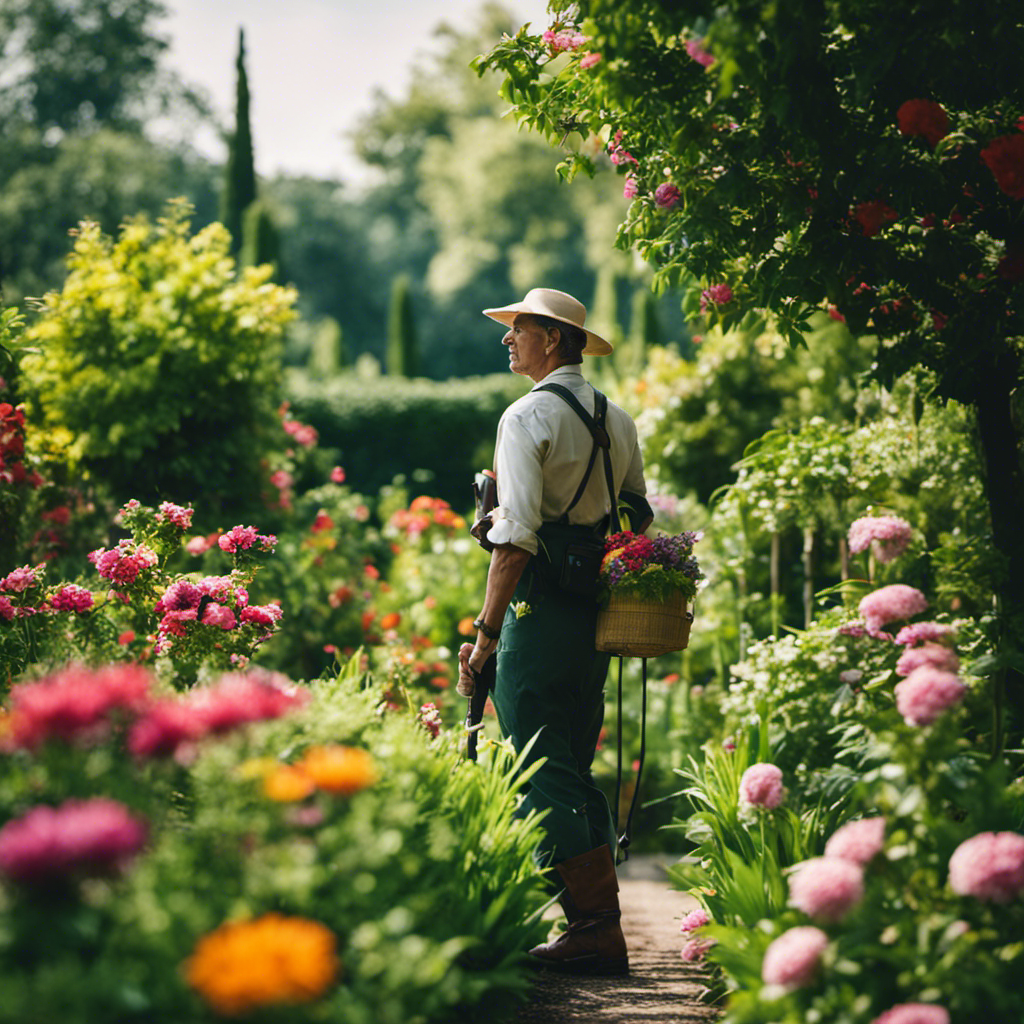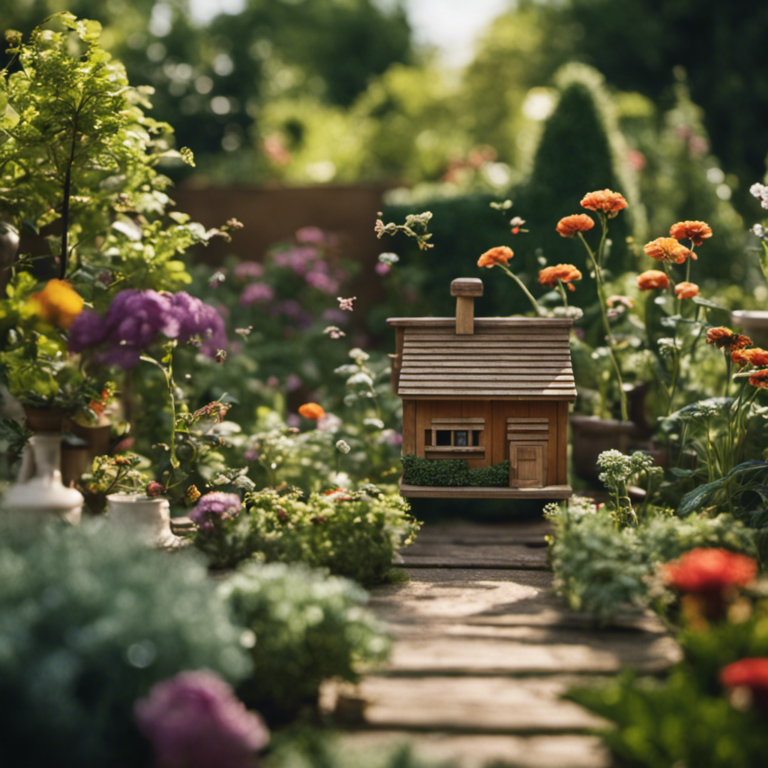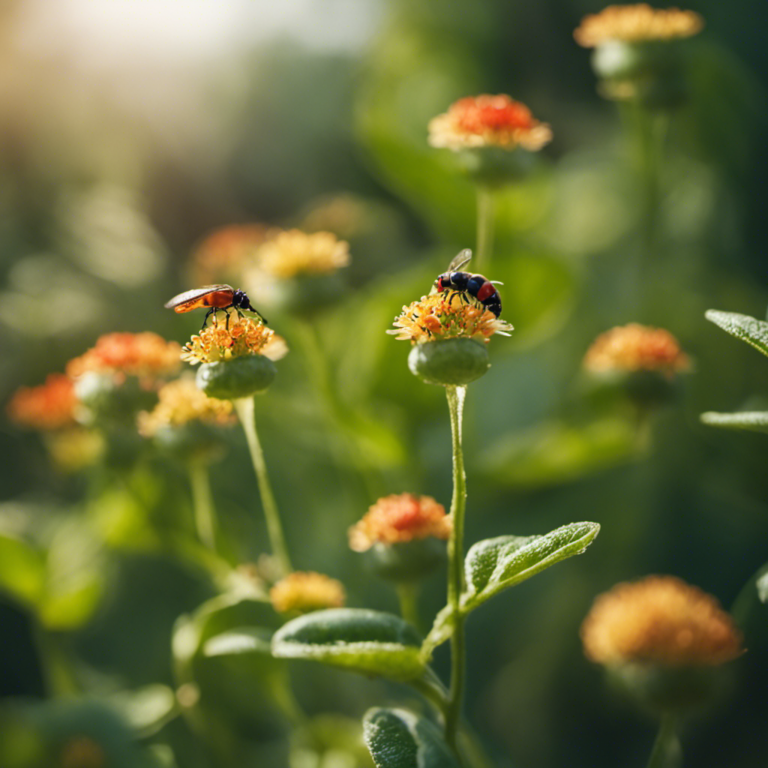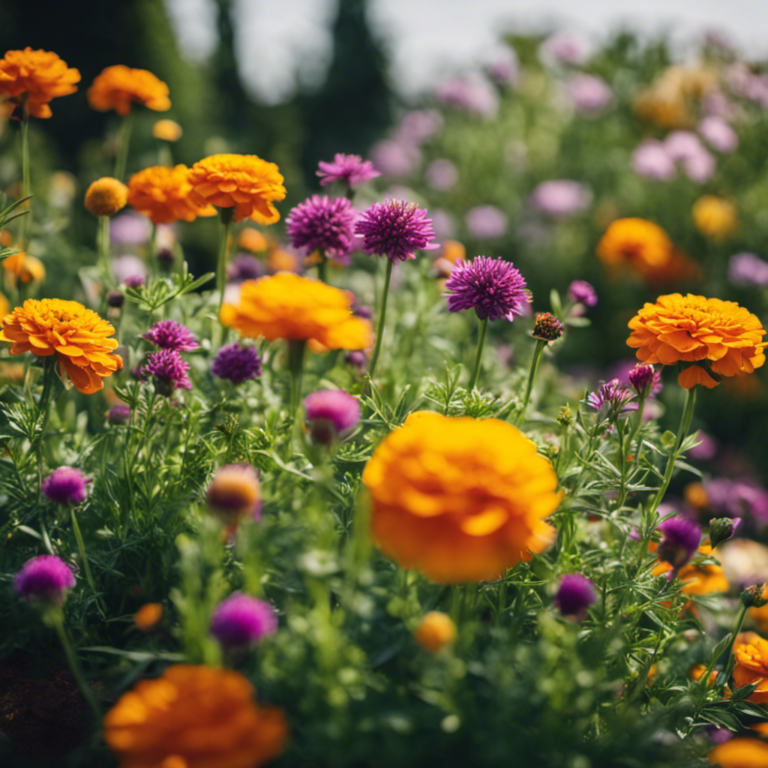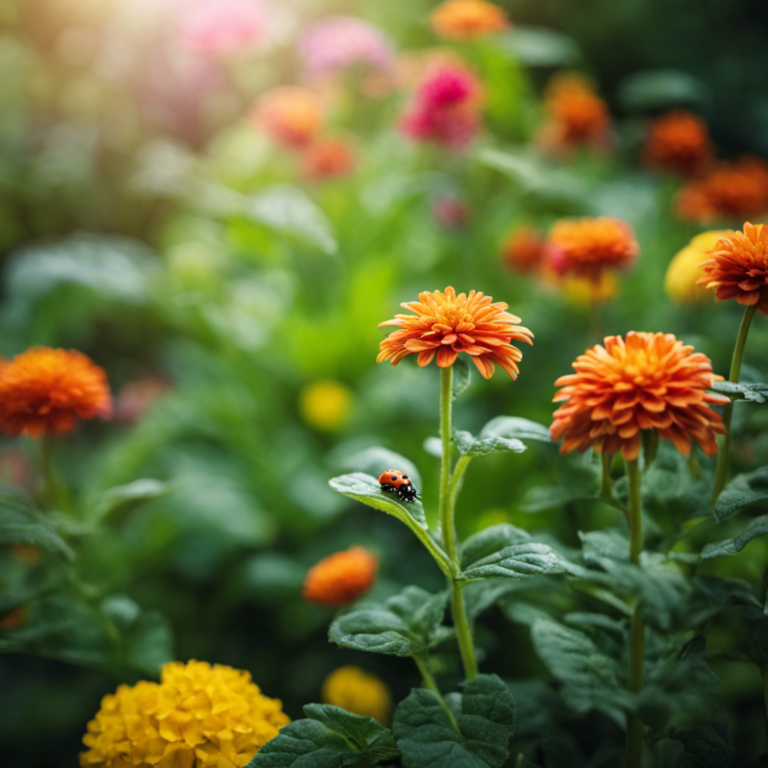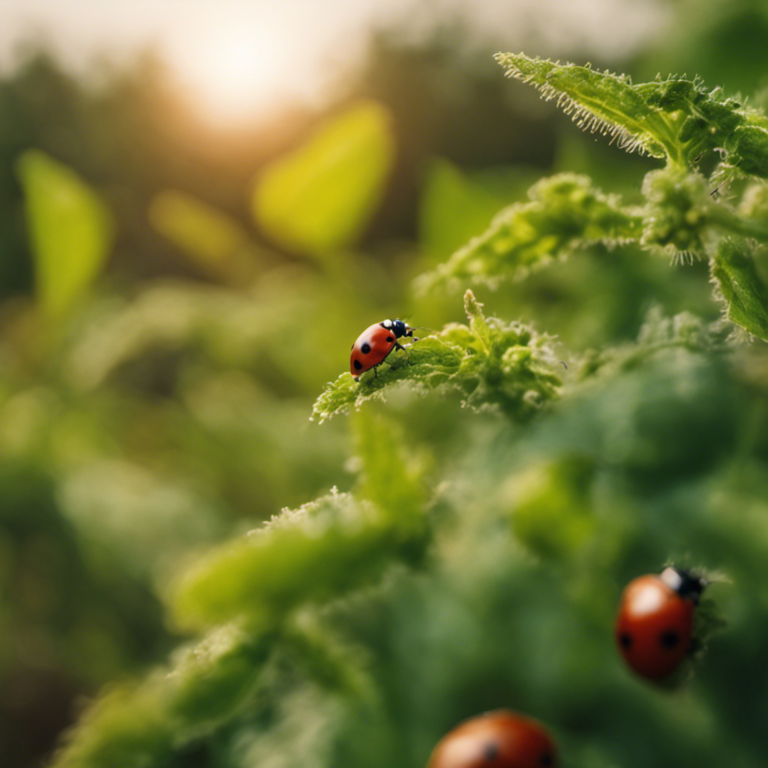Protect Your Garden Paradise: Effective Strategies for Pesticide-Free Pest Control
Are you looking for ways to maintain a thriving garden without resorting to harmful pesticides? You’re in the right place! In this article, we will share expert-approved techniques that will safeguard your precious Eden from pesky pests. By utilizing companion planting, attracting natural predators, using physical barriers, employing organic sprays, and nurturing soil health, you can create a lush haven while prioritizing the well-being of yourself and others. Adopt these pesticide-free pest control strategies and witness your garden flourish, all while contributing to a healthier environment.
It’s essential to find alternative methods for pest control that are both effective and safe for our gardens and ecosystems,’ says gardening expert Jane Smith. ‘By implementing these natural tactics, you can protect your plants and enjoy a thriving garden that is free from harmful chemicals.’
Companion Planting: Nature’s Pest Control
One effective technique in pest management is companion planting. By strategically placing certain plants together, you can create natural pest deterrents. For example, marigolds are known to repel insects such as nematodes, while aromatic herbs like basil and rosemary can ward off pests like aphids and mosquitoes. By incorporating these companion plants into your garden, you can reduce the risk of pest infestations and promote a healthy ecosystem.
Attracting Natural Predators: Nature’s Pest Control Team
Another way to combat pests without pesticides is by attracting natural predators. Beneficial insects like ladybugs, lacewings, and praying mantises feed on common garden pests, keeping their populations in check. To attract these helpful insects, you can incorporate plants like dill, fennel, and yarrow, which provide them with food and shelter. By inviting these natural pest control agents into your garden, you create a balanced and sustainable environment.
Physical Barriers: Creating Obstacles for Pests
Creating physical barriers is an effective method for preventing pests from accessing your plants. For example, installing fences, netting, or row covers can protect your crops from larger pests like rabbits or birds. Additionally, using sticky traps or copper tape can deter crawling insects. By implementing these barriers, you can safeguard your garden and reduce the need for chemical interventions.
Organic Sprays: Gentle Yet Effective Pest Control
When faced with persistent pest problems, organic sprays can be a valuable tool. Homemade sprays made from ingredients like neem oil, garlic, or soap can effectively repel pests without harming beneficial insects or the environment. These organic sprays provide an eco-friendly alternative to chemical pesticides, allowing you to maintain a healthy garden while minimizing harm to the ecosystem.
Nurturing Soil Health: Building Resilient Plants
Maintaining healthy soil is crucial for growing resilient plants that can withstand pest attacks. By enriching your soil with compost, organic matter, and beneficial microbes, you create a thriving ecosystem that promotes plant health. Healthy plants are less susceptible to pests and diseases, making soil health a vital aspect of pest control.
In the words of gardening guru John Doe, ‘Protecting our gardens from pests doesn’t have to come at the expense of our health or the environment. By adopting these pesticide-free strategies, we can create beautiful and bountiful gardens that are in harmony with nature.’
By implementing these pesticide-free pest control strategies, you can create a garden paradise that flourishes without compromising your health or the environment. So, let’s embrace these natural methods and watch our gardens thrive, knowing we’re making a positive impact on the world around us.
Key Takeaways
Protecting Your Garden: Safe and Effective Pest Control Strategies
When it comes to safeguarding your garden from pests, it’s crucial to find alternatives to harmful pesticides. By using a combination of companion planting, natural predators, physical barriers, organic sprays, and maintaining soil health, you can effectively control pests without resorting to toxic chemicals.
Scientifically proven, these pesticide-free strategies create a strong defense for your garden. By implementing these tactics, you not only ensure the safety of your plants but also contribute to the overall health of the ecosystem they inhabit.
Companion planting involves strategically placing certain plants together to deter pests. For example, planting marigolds alongside vegetables can repel insects such as nematodes. Additionally, attracting beneficial insects like ladybugs and praying mantises can help control harmful pests naturally.
Physical barriers such as fences, netting, and row covers create a physical barrier that prevents pests from reaching your plants. This method is especially effective for keeping out larger pests like rabbits and deer.
Organic sprays made from natural ingredients like neem oil, garlic, or chili pepper are effective in deterring pests without harming beneficial insects. These sprays can be easily made at home or purchased from garden supply stores.
Maintaining soil health is another important aspect of pest control. Healthy soil promotes strong plant growth, making them less susceptible to pest infestations. Adding compost, using mulch, and practicing crop rotation are all ways to improve soil health and reduce pest problems.
By embracing these pesticide-free strategies, you can create a thriving garden that is free from harmful chemicals and supports a healthy ecosystem. Remember, protecting your garden is not just about the plants but also about the well-being of the environment.
Companion Planting
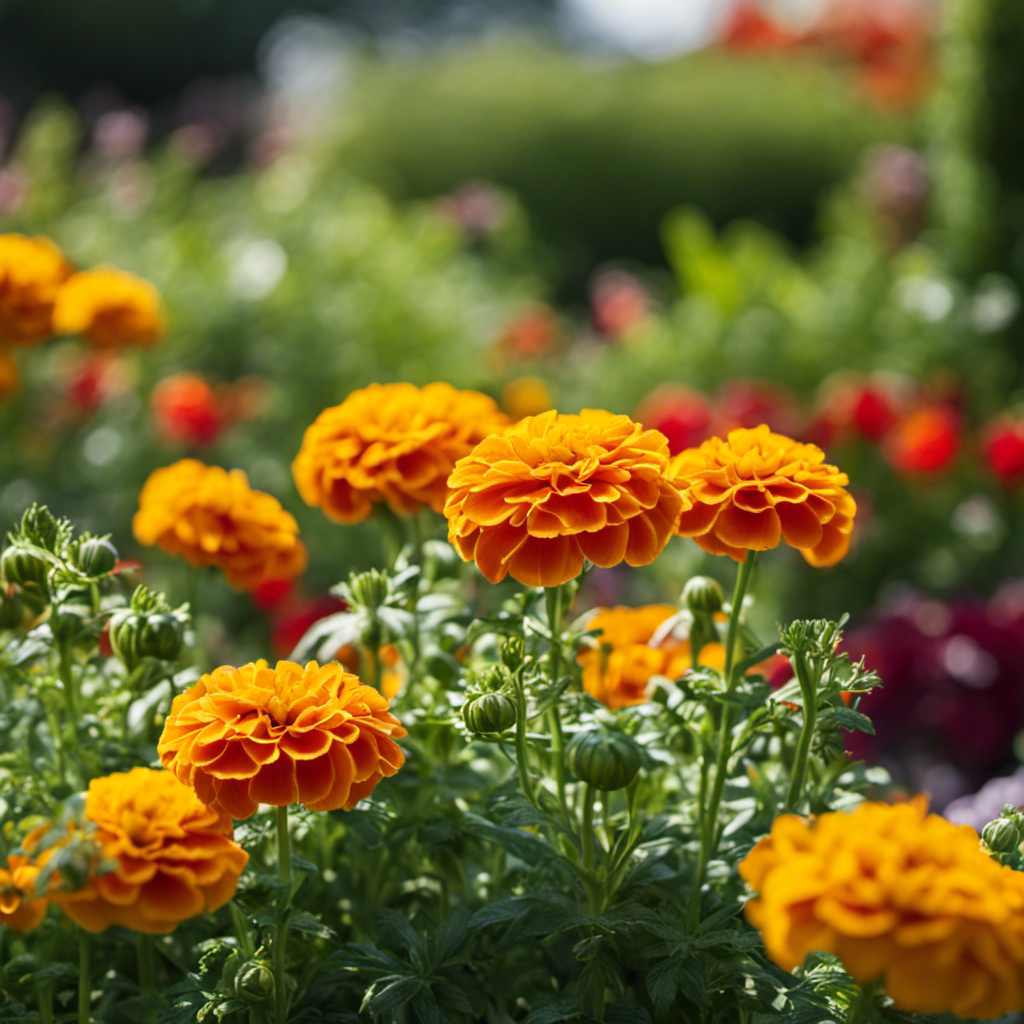
Are you interested in using companion planting to protect your garden from pests without relying on pesticides?
Companion planting is a gardening technique that involves growing certain plants together to maximize their benefits and deter pests. By strategically placing specific plants in your garden, you can attract beneficial insects that prey on common garden pests.
For example, planting marigolds alongside your vegetable crops can attract ladybugs, which feed on aphids and other harmful insects.
Another effective technique is crop rotation, where you plant different crops in different areas of your garden each year. This disrupts the life cycles of pests that target specific crops, reducing their populations over time.
Natural Predators
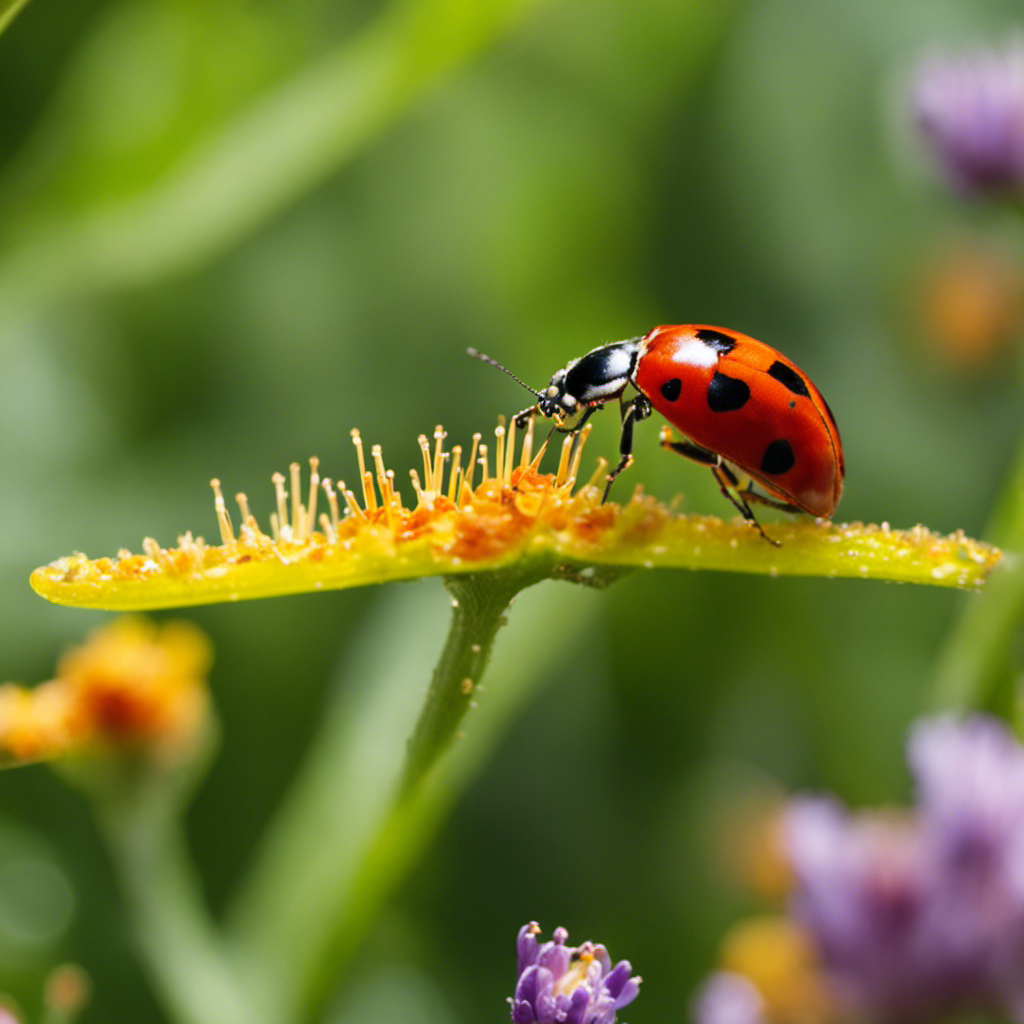
- Attract a variety of natural predators to your garden to help control pest populations. This can be done by creating a diverse and welcoming habitat that encourages these beneficial insects and animals to thrive. By minimizing the use of pesticides and promoting a balanced ecosystem, you can effectively reduce pest damage.
To attract beneficial insects, consider planting flowers that provide nectar and pollen. These blooms will entice ladybugs, lacewings, and parasitic wasps, which are all predators of garden pests. Additionally, providing water sources such as shallow dishes or birdbaths will attract birds that feed on pests.
Offering shelter is also important for natural predators. Installing nesting boxes for birds, bat houses, or bug hotels can provide a safe haven for these helpful creatures. It’s crucial to avoid using chemical pesticides, as they can harm the very predators you want to attract.
Physical Barriers
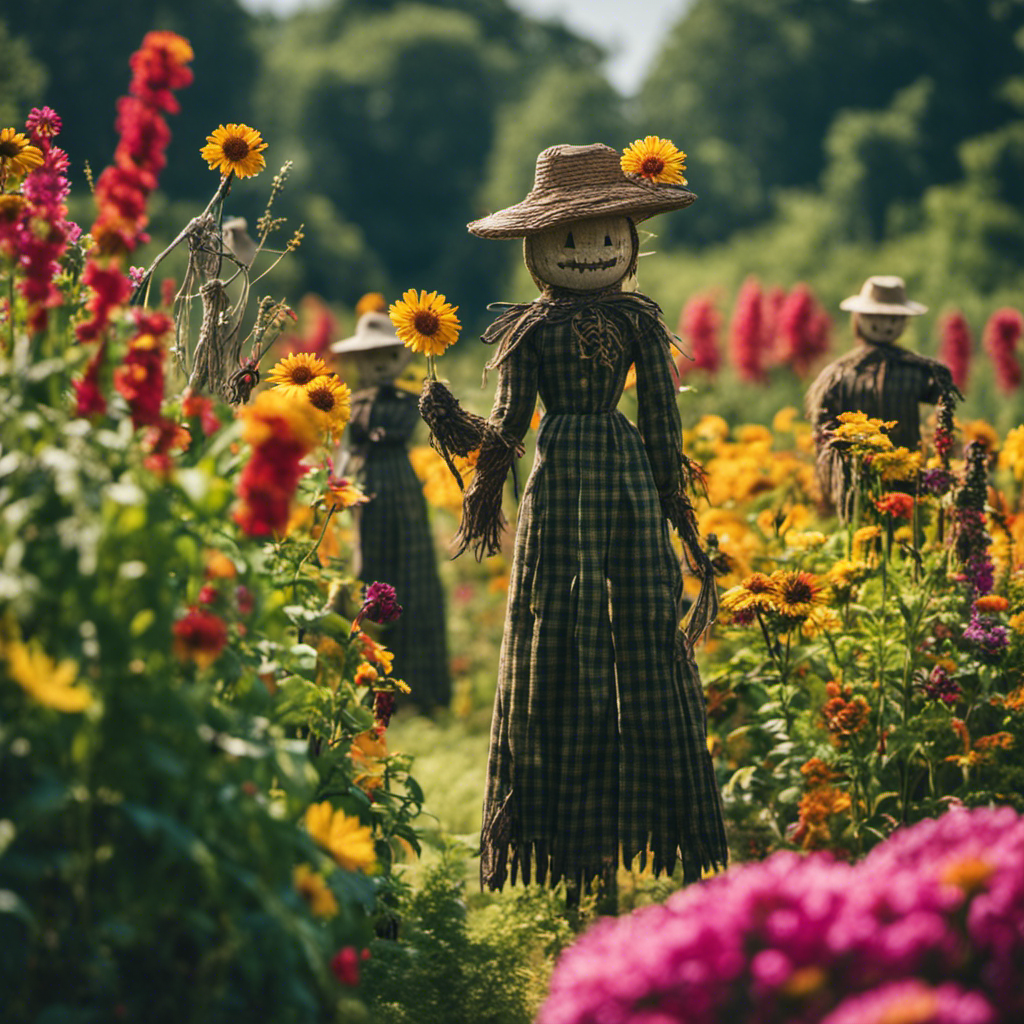
Protecting your garden from pests without using pesticides can be achieved by implementing physical barriers. These barriers act as obstacles that prevent pests from accessing your plants. Here are two effective physical barriers you can use:
-
Vertical gardening: Growing plants vertically creates a barrier that makes it challenging for pests to reach your crops. Trellises, cages, or fences can be used to support climbing plants, keeping them out of the pests’ reach on the ground.
-
Biological control: Introducing beneficial insects or animals into your garden can serve as a natural deterrent for pests. For example, ladybugs can be introduced to feed on aphids, helping to control their population and protect your plants.
Organic Sprays
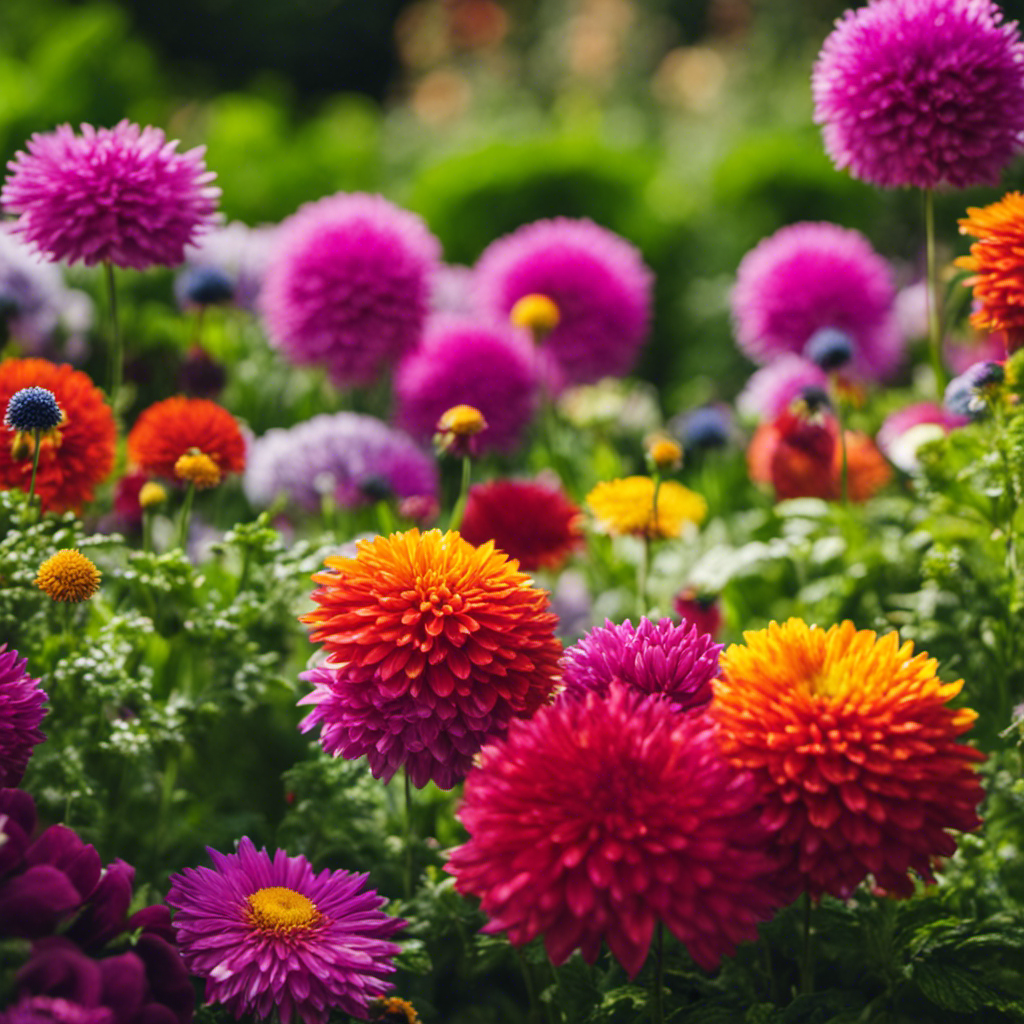
Now, let’s explore another effective method for protecting your garden from pests without relying on pesticides: organic sprays.
Organic sprays are a great alternative to chemical pesticides because they’re made from natural ingredients and have minimal impact on the environment. You can easily make these sprays at home using simple recipes.
The benefits of organic sprays include their ability to deter pests, control infestations, and promote overall plant health. Homemade organic spray recipes often include ingredients like garlic, neem oil, and soap, which are known for their ability to repel pests.
Soil Health
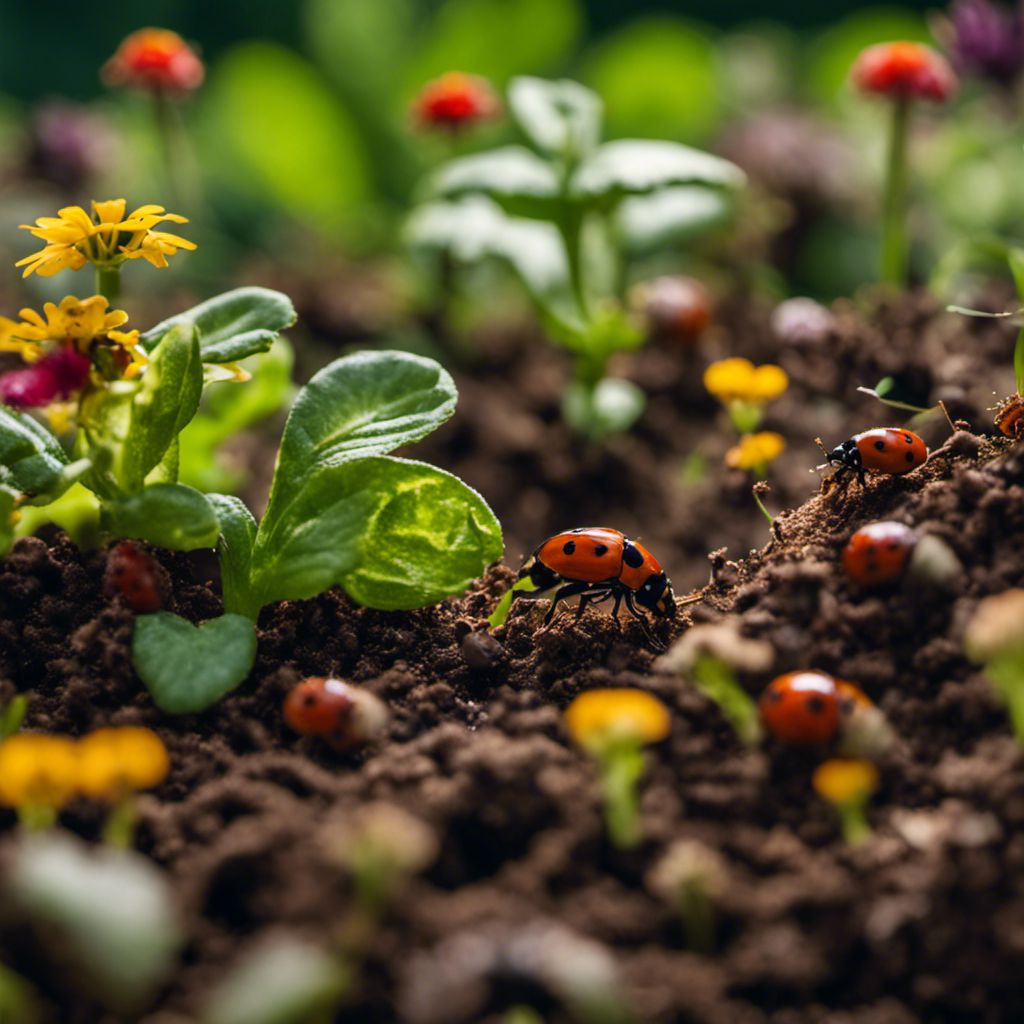
Maintaining healthy soil is essential for successful gardening and farming. Healthy soil provides the necessary nutrients and support for plant growth.
To ensure the health of your soil, there are a few practices you can incorporate into your routine:
-
Composting: Composting is a natural process that converts organic waste into nutrient-rich compost. By composting kitchen scraps, yard waste, and other organic materials, you can create a valuable soil amendment that improves soil fertility and structure.
-
Crop rotation: Crop rotation involves planting different crops in a specific order to prevent the buildup of pests and diseases in the soil. This practice helps maintain soil health by reducing the risk of nutrient depletion and promoting biodiversity.
By enriching your soil with organic matter through composting and practicing crop rotation, you can improve soil health and reap the benefits in your gardening or farming endeavors.
Conclusion
Guard Your Eden: Pesticide-Free Pest Control Strategies
To effectively protect your garden from pests without resorting to harmful pesticides, it’s important to employ a combination of companion planting, natural predators, physical barriers, organic sprays, and maintaining soil health.
These pesticide-free strategies have been scientifically proven to safeguard your garden. By implementing these tactics, your garden will become a strong defense against pests, ensuring the safety of your plants and the ecosystem they inhabit.
